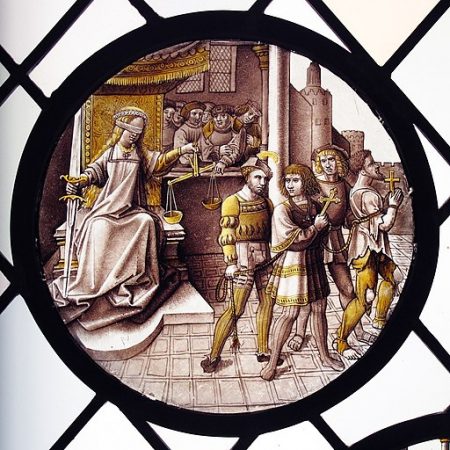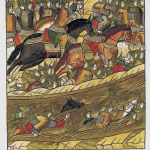
Dutch Roundel with Justice - Metropolitan Museum of Art /
CC0 - Creative Commons CC0 1.0 Universal Public Domain
Dedication
Those following the Julian Assange story probably already know about the recent ruling in the DNC email case. This is the one where the DNC sued Russia, the Trumpies, and Wikileaks over their stolen emails. They said it was racketeering. The judge said it wasn’t and dismissed the case. With prejudice meaning they even can’t file it again.
This was such a bummer to the DNC that they initially had nothing to say. The next day, they managed to mumble a few words about what a shame it was that free speech trumps the sanctity of our elections, or words to that effect. A few news outlets covered it and then the story faded away. Which is odd because it was kind of a big story — one wonders how it would have been covered had the ruling gone the other way.
The DNC alleged that the theft and publication of campaign emails amounted to the theft of “trade secrets,” and they wanted everyone found guilty of racketeering, or like crimes. Named as defendants in the suit are the Russian government, assorted Russians and shady international types, the Trump campaign, and Wikileaks.
Basically, Judge Koeltl said that the only case the DNC had was against the Russian government and its agents, and that they couldn’t sue a foreign government in Southern District Court of New York.
As to Wikileaks and Julian Assange, Koeltl ruled that precedent going back to the Pentagon Papers protects the publication and dissemination of materials deemed to be in the compelling public interest, and that information about the internal workings of the DNC, a major political party, was the kind of information most often covered under the First Amendment.
The judge went on to say that even if the information supplied to the publisher was stolen, as in the case of the DNC emails, the publisher was still not liable. Only the people who actually stole the data were liable, but on different grounds than those alleged in this case.
The mainstream press who actually covered the story (and there were only a few who did) tended to present it as an unwarranted victory for Donald Trump, and possibly a travesty. Much was made of Judge Koeltl’s appointment by President Bill Clinton with just a hint of “ungrateful wretch” thrown in.
What this means for Julian Assange, founder of Wikileaks, remains to be seen, but there are some commentators who believe that it will be harder to extradite him with this ruling on the books, since the US government hopes to try him for the publication of the DNC emails. Assange is currently locked up in Belmarsh, a maximum security prison in London, where he awaits an extradition hearing.
Such cloak and dagger geopolitics is beyond the reach of our measly little, moth-eaten Constitution, but the judge’s decision in this case shows that where law still prevails, some justice is possible. Score one for free speech and the right to know, on behalf of all us little guys.




